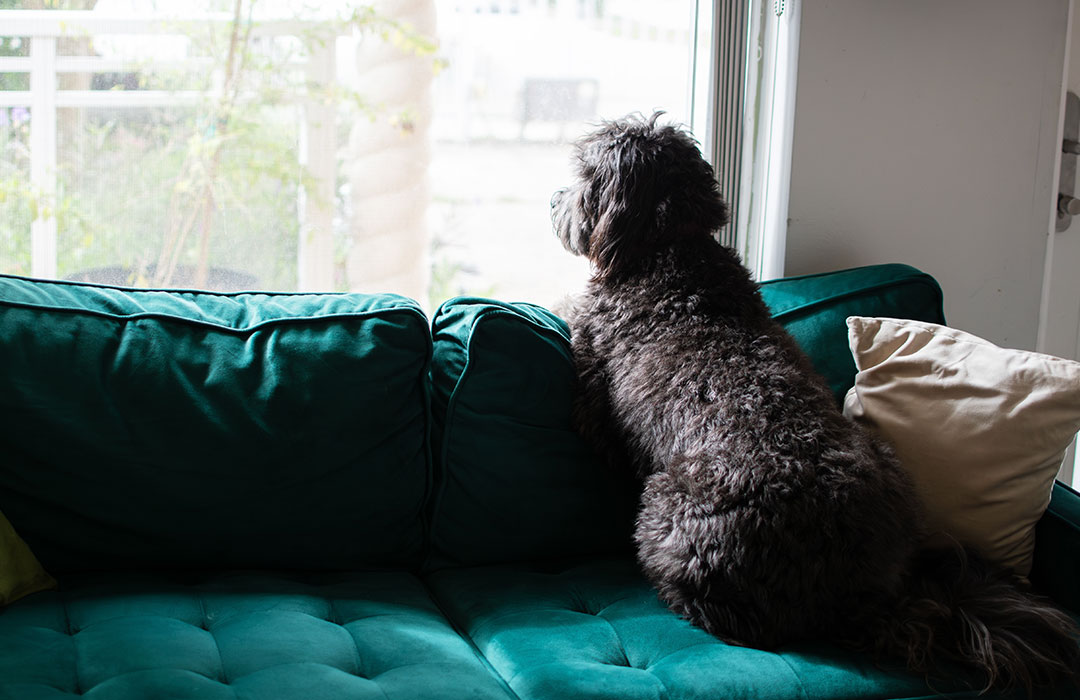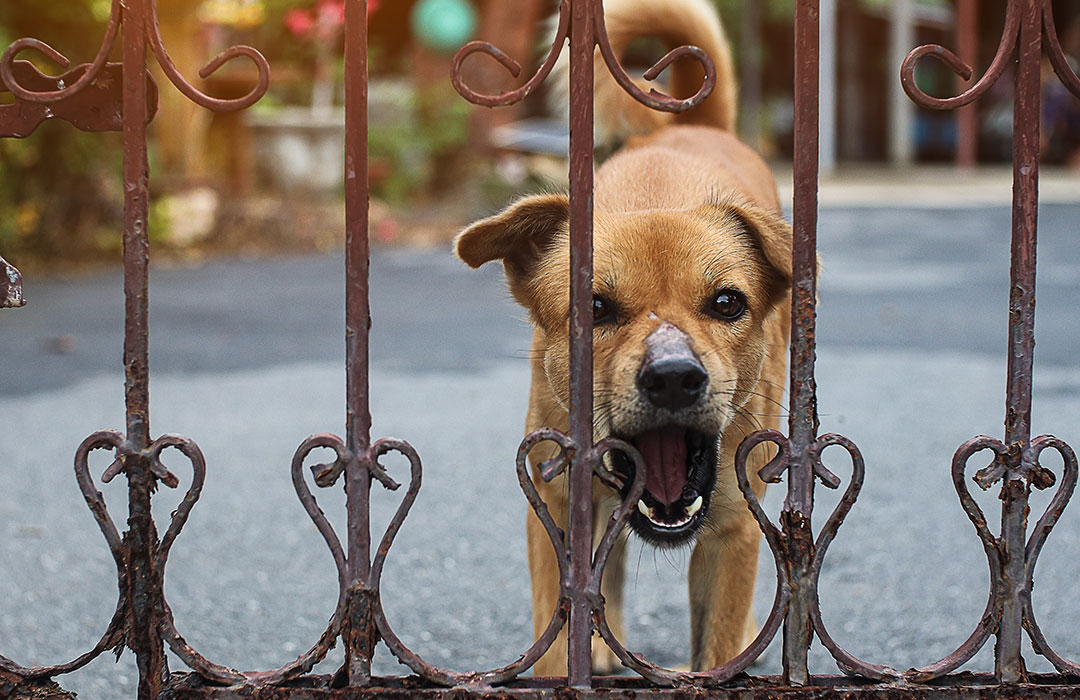Dogs Behaving Badly | Tips To Improve Dog Boredom And Anxiety
Posted by Wolf & I Co. on Oct 22, 2024
Wolf & I Co. have collaborated with Pet Parents Portal (a team of vets sharing vital tips to help care for your dog) and they've put together some helpful information to explain a common complaint that they hear in veterinary practice, which is about dogs behaving “badly” when their pet parents aren’t home.
These undesirable behaviours include:
- Physically destructive behaviour (chewing, scratching, ripping up dog toys and dog beds, overturning food and water bowls, etc).
- Vocalisation (barking, whining, howling).
- Inappropriate toileting (dogs who are toilet trained having accidents in the house while pet parents are away).
These dogs are not trying to behave badly but they are trying to communicate something to their pet parents.
They are acting on their feelings of frustration and stress which can be caused by either separation anxiety or boredom.
In the case of boredom, a common primary event is the lack of adequate mental and physical stimulation in the environment of our canine companions.
In the case of separation anxiety, the dogs experiencing it feel panic and intense fear that their preferred pet parent is not coming back.

So in both instances the underlying issue needs to be addressed as soon as possible as it is upsetting and frustrating for both the pet parents and their canine companions, can compromise their bond and make everyone involved feel miserable.
The first step in this process is figuring out whether our canine companions are simply bored and under stimulated or anxious?
There are a few things that can help us work this out so that we can appropriately identify and address the problem.
These are summarised in the table below.
| Behaviour | Boredom | Anxiety |
| Panting | Not unless dog is hot | Possible |
| Trembling | No | Possible |
| Increased vocalisation | Possible but usually settles when dog is distracted | Possible but usually more intense than with boredom |
| Appetite | Normal or increased. Would happily chew treats when the pet parent is away. | Variable. Many dogs with separation anxiety don’t eat when their pet parents are away and some don’t even drink. |
| Sleeping | Normal or more than normal | Unlikely to rest calmly. |
| Nature of physically destructive behaviours | Can chew, gnaw, dog and then move on to other activities or go to sleep | Destruction is much more frenzied and relentless. Dogs may scratch at doors or dig frantically under fences in an attempt to escape and find their pet parent. |
| Drooling | No | Possible |
| Timing of behaviour | Any time the dog is feeling bored, even if pet parents are home. | Occurs only when the dog is left alone or without their preferred pet parent. |
| Inappropriate toileting | Possible | Possible but more likely |
| Self Trauma | No | Possible |
| Onset of behaviour | Any time the dog isn’t getting attention | Signs of distress build up as pet parents prepare for departure |
Observing your dogs’ behaviour and timing of behaviour according to the table above should help categorise their unwanted behaviour into one of the two causes discussed.

So what now?
Dogs that are bored need more mental and physical stimulation to keep them fulfilled and happy.
This can be in the form of the following:
- Regular outdoor activity suited to the dogs’ fitness level and socialisation requirements
- Regular dog training sessions to keep their minds stimulated.
- Long lasting treats that dogs can indulge in during the pet parents’ absence.
- Various enrichment activities for them to participate in while they are alone such as lick mats, snuffle toys (purchased or home-made), various dog toys that are rotated frequently to keep excitement and engagement to a maximum.
When pet parents are away from the home for extended periods of time, consideration can be given to the following:
- Doggy day care
- Outdoor adventures with a dog walker
- Doggy play dates with the other dog’s pet parents supervising at their place (provided this suits both parties).
Separation anxiety in dogs, on the other hand, is actually a medical issue and help from your regular vet for treatment is required. Your vet may devise a treatment plan for your dog or may recommend referral to a behavioural specialist depending on the specifics of your situation.
So the next time you notice your dog behaving badly you will know exactly what is going on and will be armed with useful knowledge on how to improve these occurrences.
Want to follow Pet Parents Portal? Check them out on Instagram and subscribe for more epic adventures sent direct to your inbox!

